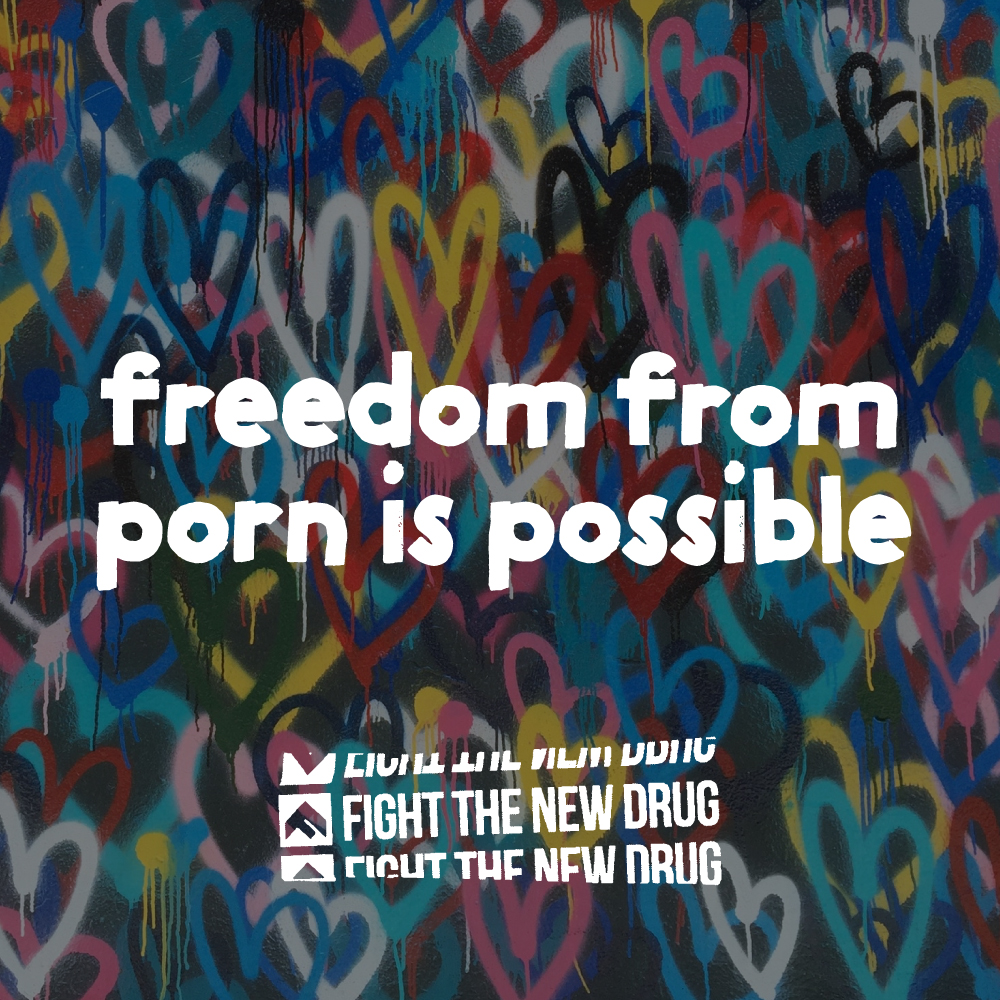In the fight against porn, it can feel like the focus is only on hardcore content’s effects on couples—how porn affects a relationship negatively and what couples can do to battle porn together. But what about all the single ladies (and guys) out there?
Sometimes, it can seem like fighting porn is only valuable or possible if you are in a relationship already, but this is completely false. Porn isn’t just an issue for those in romantic relationships, it’s an everyone problem, regardless of relationship status. The truth is, porn can strongly affect individuals, and it is heavily linked to the sex trafficking industry.
So even if you’re riding solo, fighting against porn means fighting against addiction and sexual exploitation. Fighting porn for yourself, as an individual, is just as important (if not more so) as fighting as a partner in a relationship. Here’s why.
Not watching can make you happier
Regularly watching porn has been shown to cause or fuel existing anxiety, depression, and loneliness. [1]
“The more one uses pornography, the more lonely one becomes,” says Dr. Gary Brooks, a psychologist who has worked with porn addicts for the last 30 years. [2] “Any time [a person] spends much time with the usual pornography usage cycle, it can’t help but be a depressing, demeaning, self-loathing kind of experience.” [3]
Related: Matt’s Story: I Quit Watching Porn and I’ve Never Been Happier
Since porn depicts men and women as being nothing more than sex objects, people who watch porn tend to subconsciously start thinking of themselves that way. [4] Because it can be hard to reach out to friends and family to explain how they are feeling and how they are struggling with porn, many people turn to the easiest source of immediate “comfort” available: more porn. This leads to a vicious cycle. [5]
Breaking free of this cycle, reaching out for help, finding support, and establishing healthy forms of intimacy in one’s life can eliminate the poor self-esteem caused by porn.
In one study done on both straight and gay men, consuming pornography was correlated with higher levels of body dissatisfaction. Pornography exposure was correlated with social physique anxiety for gay men and a higher tendency of developing an eating disorder.
Also, negative body image among boys/men isn’t the only thing fueled by the idealized male bodies they see in the media, but also by the idealized images of women. This study found that men were more self-conscious about their own bodies after viewing magazines featuring photos of sexualized, scantily clad women. How is that healthy for the individual?
Many people who have broken free of a porn habit have reported greater happiness, better self-esteem, improved mental health, and happier relationships. Who wouldn’t want that?
Ditching porn can make you freer
If you are reading this, that means you have a brain, and that brain has the potential to be seriously harmed by pornography, regardless of your relationship status.
Your brain is a fairly important part of your body (note: VERY important part), and you don’t want to hinder its effectiveness or health. Fight against porn, and you fight against a potential compulsion, obsession, or addiction. It’s as simple as that.
Related: 40 Reasons Why Ditching Porn For Good Is A Great Idea
The fact is, a porn habit can lead you to skip out on spending time with your friends, trying new things, and going on adventures, all because your brain has become so reliant on porn that it makes you think you will be happier watching porn than doing those things. [6]
Fighting porn gives you greater freedom to decide what you really want to do, and when you want to do it. Instead of sitting in front of a computer for hours, fighting to be free from porn gives you the freedom and time to try that new sport you have been interested in, take that class that sounds really interesting, travel to a new place, or invest in your friendships.
Real life, and real life-giving experiences have so much more to offer than porn does.
Not supporting porn allows you to support a great cause
Sex trafficking and sexual violence are deeply connected to pornography. There’s no way around it.
Many people have no clue that one of the harmful effects of pornography is its inseparable link to exploitation, prostitution and sex trafficking. Many are convinced that every person involved in porn is there because they really are the sex-craving symbols they’re marketed to be. After all, if they didn’t enjoy it, they wouldn’t do it, right?
Wrong.
Related: Why Fighting Sex Trafficking Absolutely Includes Fighting Pornography
By not watching porn, you can also be a fighter for all the men, women, and children in sex slavery who desperately need advocates. While porn can make you question your purpose in life, not watching porn can give you a sense of really being a part of a great cause and making a difference in the world. And who doesn’t want to make a real difference?
Are you in?
So do you want to be happier, freer, and connected to an awesome cause? You don’t have to be in a relationship or even interested in one to have a reason to partner with us in educating about the harmful effects of porn.
The effects of pornography are everywhere; it impacts all of us, whether we are in a relationship or not. Porn has the potential to alter how our brains work, and it supports sexual exploitation. Porn can take all the best parts of life away and leave us with the leftovers.
We believe there’s a much higher quality of life than anything porn can offer. You are worth fighting for!
Need help?
For those reading this who feel they are struggling with pornography, you are not alone. Check out Fortify, a science-based recovery platform dedicated to helping you find lasting freedom from pornography. Fortify now offers a free experience for both teens and adults. Connect with others, learn about your unwanted porn habit, and track your recovery journey. There is hope—sign up today.
Fight the New Drug may receive financial support from purchases made using affiliate links.



